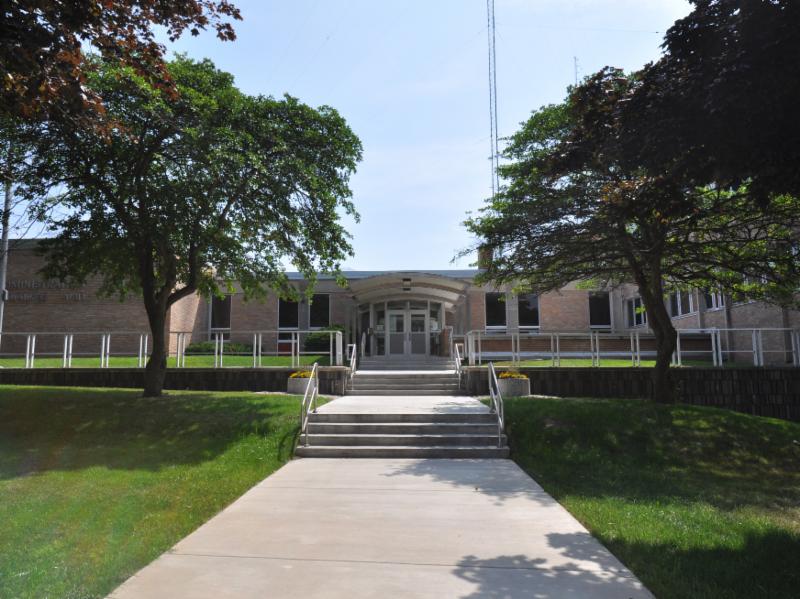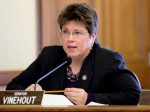Schools Special Needs Grossly Underfunded
Special Education and bilingual instruction are mandated by federal or state law but way underfunded.

Milwaukee Public Schools Office of School Administration, 5225 W. Vliet St. Photo courtesy of Milwaukee Public Schools.
“Welcome back to school,” the newsletter proclaimed. The Superintendent welcomed all with a cheery letter describing the amazing team at the school.
As students walk toward the school doors, they see from the outside that everything looks great. My local school district is proud of the new asphalt on the parking lot.
Inside the building, teachers worked hard to create a welcoming environment. For weeks, teachers, administrators and staff prepared a friendly and positive atmosphere for students, including cheerful posters decorating the walls and bright colors adorning the halls.
Parents looked through the school supply list and made a shopping trip to prepare their children for school. Many teachers made lists and purchased needed supplies with their own checkbook.
To meet student needs, teachers stock their shelves with food for children who come to school hungry. Or hygiene supplies for children who need help keeping their young bodies clean. Often, it means creating a clothes closet for children who need coats, hats, shirts or shoes.
Peering into the schoolroom window we see children in poverty, children suffering from mental illness and/or trauma. Schools are helping more students with special needs. Many schools have more students who are English Learners.
Schools take on the challenge of meeting the needs of all students. However, children in poverty need more resources. They can succeed, but they need more help to do so.
Schools grapple with finding resources to help children with special needs. The federal government requires certain services for special needs students. Regardless of the tight school budget, schools must offer those services.
Unfortunately, Wisconsin only provides twenty-six cents for every dollar schools spend on special needs services. As a consequence of this policy, school boards and superintendents are forced to cut services for general education to meet the federally required special needs services. In essence, all children sacrifice to help fill the gap in the special needs budget.
A similar pattern emerges with the education of children who are English Learners. In 1990, the state paid 63 cents of every dollar a school spent on bilingual/ bicultural programs. Now, the state pays about eight cents of every dollar. As children’s needs increase, resources must be shifted from other programs to make up for the shortfall.
Likewise, mental health needs of students are increasing. For example, a recent survey of students reported nearly half of all girls and thirty-percent of all boys surveyed reported anxiety, along with higher rates of sadness, hopelessness and thoughts of suicide. Students are also increasingly facing trauma, especially students in poverty. Trauma affects students’ cognitive abilities as well as their behavioral and impulse controls. Schools need resources to help these children.
In real dollars, state funds flowing to schools are less than a decade ago. Wisconsin public schools suffered historic budget cuts under Gov. Walker. Despite increases in his Election Year budget, schools have not recovered from the massive cuts in 2011. In real dollars, public schools are getting less this year than they received in 2008-09.
Following enactment of Act 10, and the historic cuts to schools, teachers left the profession and fewer college students are becoming teachers. Budget cuts forced rural schools to cut support staff and courses in art, music, ag, along with advanced placement classes. Now, schools across the state are experiencing difficulties filling vacancies.
I serve on the Legislature’s Blue Ribbon Commission on School Funding. We heard public testimony from schools around the state that experience serious budget challenges. Often the problems facing rural and inner-city schools are cited as reasons to change the state’s current course on school funding. However, I learned even suburban schools, like Kettle Moraine, are facing program cuts.
When we couple the increasing needs of children with historic budget cuts to schools, we can see through the school room window that challenges cannot be solved by our local school districts alone.
Wisconsin must reverse course and return to making education our top funding priority.
State Sen. Kathleen Vinehout, D-Alma, is a member of the Wisconsin state Senate.
Op-Ed
-
Unlocking Milwaukee’s Potential Through Smart Zoning Reform
 Jul 5th, 2024 by Ariam Kesete
Jul 5th, 2024 by Ariam Kesete
-
We Energies’ Natural Gas Plans Are A Mistake
 Jun 28th, 2024 by John Imes
Jun 28th, 2024 by John Imes
-
Milwaukee Needs New Kind of School Board
 Jun 26th, 2024 by Jordan Morales
Jun 26th, 2024 by Jordan Morales





















